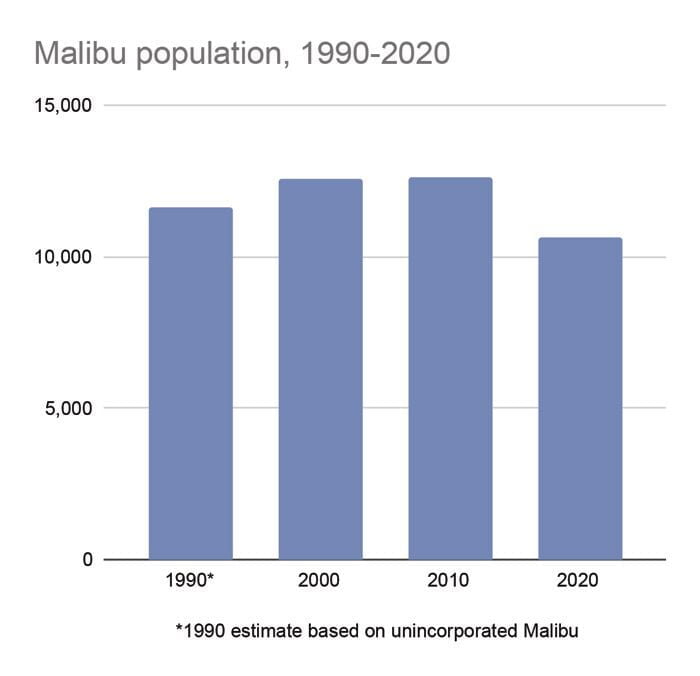Local census data has revealed unprecedentedly low response rates in Malibu. Demographers point to the pandemic as a prime contributing factor that has disrupted community counts statewide, and which could have potential negative implications for the future.
In an email to The Malibu Times, 2020 census field supervisor Olivia Sellers stated that “Covid-19 had a huge impact on the Census nationwide” and, as a result, the designated “Census Day” for the 2020 Decennial Census, originally scheduled for April 1, 2020, was postponed.
Normally, Census Day would be the basis for data collection that determines who is counted in the 2020 census and where they are counted, which also applies for census field operations where enumerators—data collectors—and field supervisors would essentially go door-to-door for data collection.
In 2020, households had the option of responding online, by mail or by phone. Some remote areas—and all addresses that did not respond—were then to be visited by an enumerator.
That process ultimately didn’t take place until mid-July of last year, which directly impacted the data collected for areas such as Malibu, where many are considered “part-time” residents, even during the pandemic.
“If an enumerator knocked on your door, he or she would want to know if you lived at that address on April 1. If not, they’d want to find out who did, because that was the person who should be counted for that address,” Sellers wrote. “The farther away you get from April 1, the more things may have changed. More people moved to new addresses, etc.” Further, Sellers affirmed that more people were reluctant to answer a knock on the door—though enumerators and field supervisors wore facial masks and practiced social distancing throughout the data collection process.
Sellers also cited general accessibility as a key challenge for census takers in Malibu, where they have historically had a hard time gaining access to the multitude of high-valued homes, which are often either fully equipped with elaborate smart home security systems and/or located inside gated communities with controlled access through private security companies.
“We have a lot of gated communities here and we have a lot of gated private homes,’’ Sellers stated. “It can take some creative thinking on the part of enumerators and their supervisors to get past all those gates.
“Also, the terrain in the mountains can be a problem,” she continued, adding, “Locations often have spotty cell phone coverage.” Lack of cell coverage presents an immediate hindrance to the process at large, which relies heavily on software developed by the census bureau for data collection conducted by way of Apple devices (iPhones and/or iPads) issued to enumerators and field supervisors. Their entire day was scheduled through mobile devices. Instead of having a questionnaire on a clipboard (as reportedly done in the past) all questions were on the device and the information was logged in real time as questions were answered, which is how the census was completed nationwide.
The federal government’s release of the first local-level results from the 2020 U.S. Census revealed an unusually low participation rate for Malibu, which could be attributed to the unusual population decline for the area previously reported by The Malibu Times. According to the government census’ “quick facts,” Malibu’s population dropped to 10,654 in 2020, which amounts to a 15 percent decline in the last decade.
City officials and residents have expressed both confusion and concern, as data collected by the decennial census is used to determine population statistics that guide how an estimated $1.5 trillion per year in federal funds are distributed to local communities, as well as how to better carry out future once-a-decade counts that are used to reallocate each state’s share of congressional seats and electoral college votes.
“I’d like to encourage residents of Malibu to cooperate with census workers whenever they knock on the door as accurate counts affect government funding of roads and schools and community centers and myriad other projects. Congressional reapportionment is also dependent on census numbers. An accurate count is vital to getting the services we need,” Sellers stated.
As of Tuesday morning, Oct. 19, the U.S. Census Bureau is extending a final round of door knocking into early 2022 for a key survey that is expected to help determine the accuracy of last year’s national head count, according to NPR.

